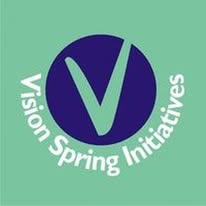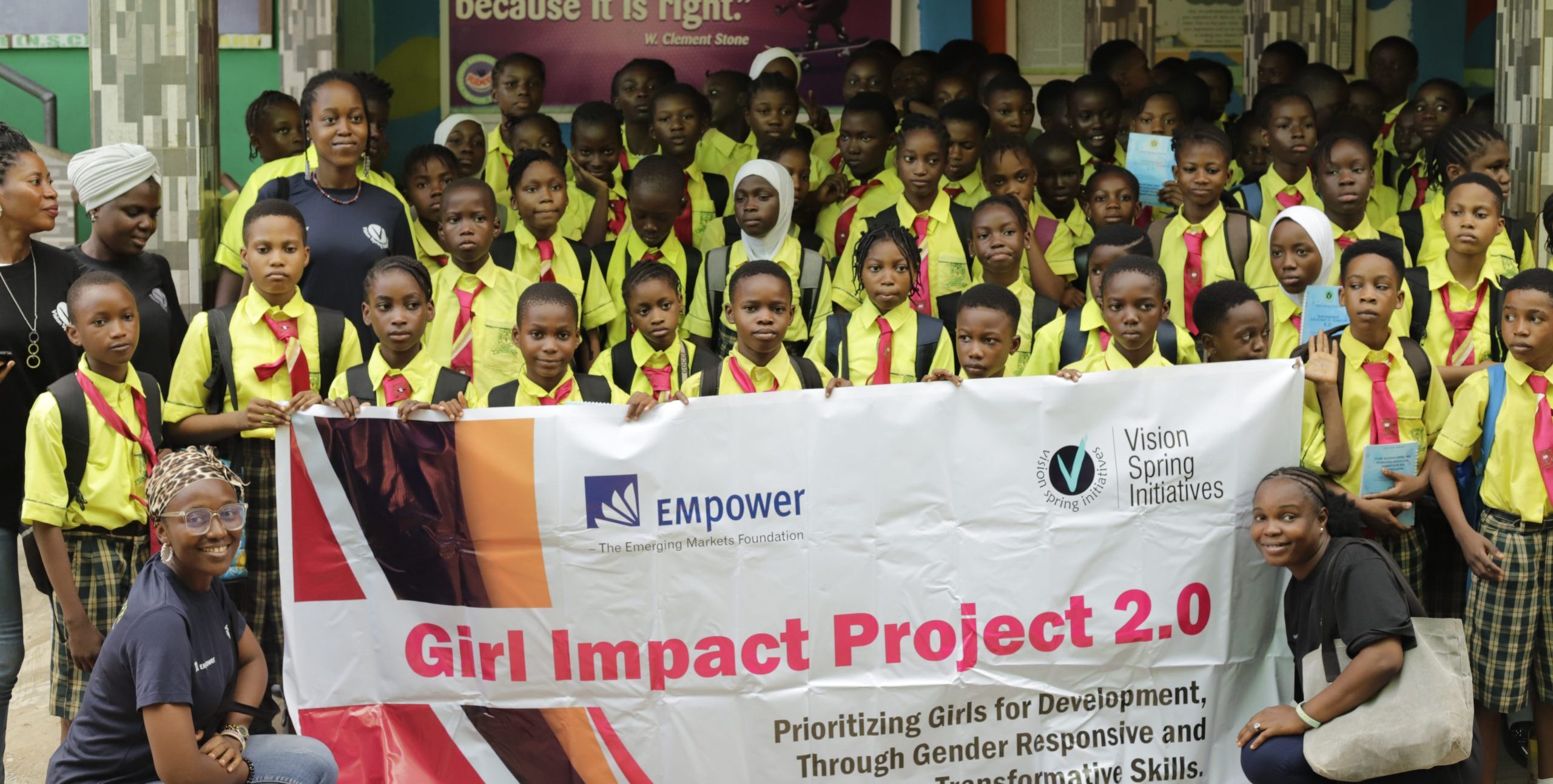
Empowering women and youth through SRHR advocacy, fostering inclusive communities, informed choices, gender equality, and sustainable development initiatives.
Programs and Initiatives
Our Projects
Girl Impact
In 2020, Vision Spring Initiatives launched its Girl Impact Project to primarily focus on the sexual and reproductive health and rights of adolescent girls and a few boys in secondary schools in Lagos state. This is in response to an increased lack of access to age-appropriate sexual and reproductive health services information and increased sexual violence in Nigeria.
The approach presents structured, non-discriminatory, and age-appropriate means of responding to the SRHR needs of girls in Nigeria.
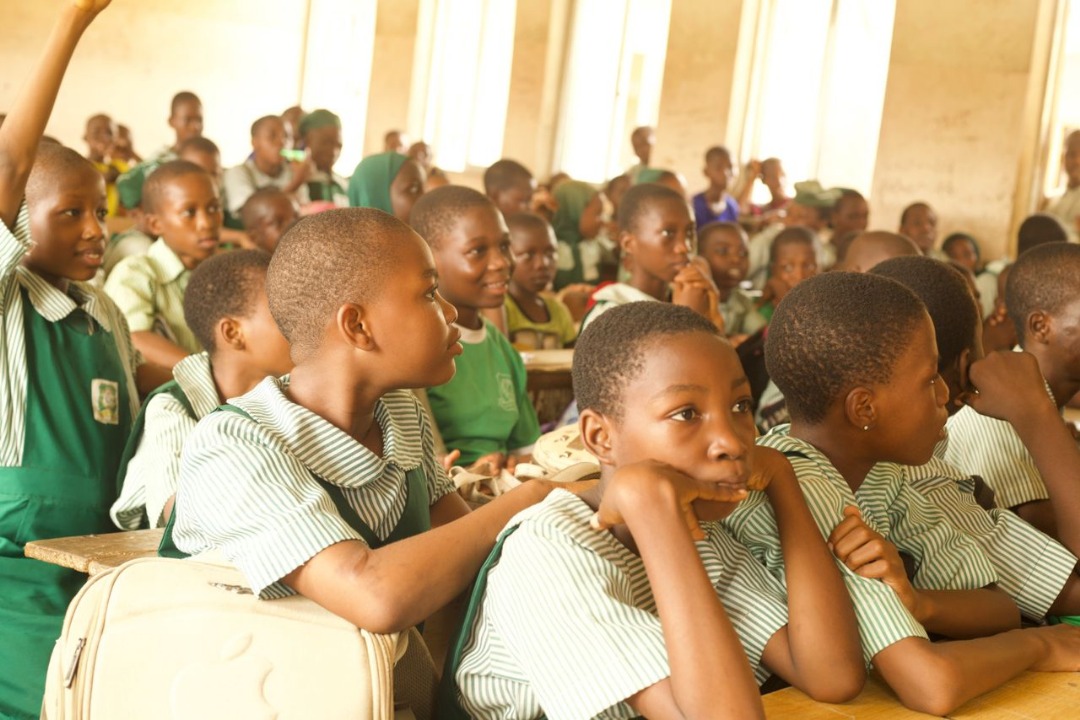
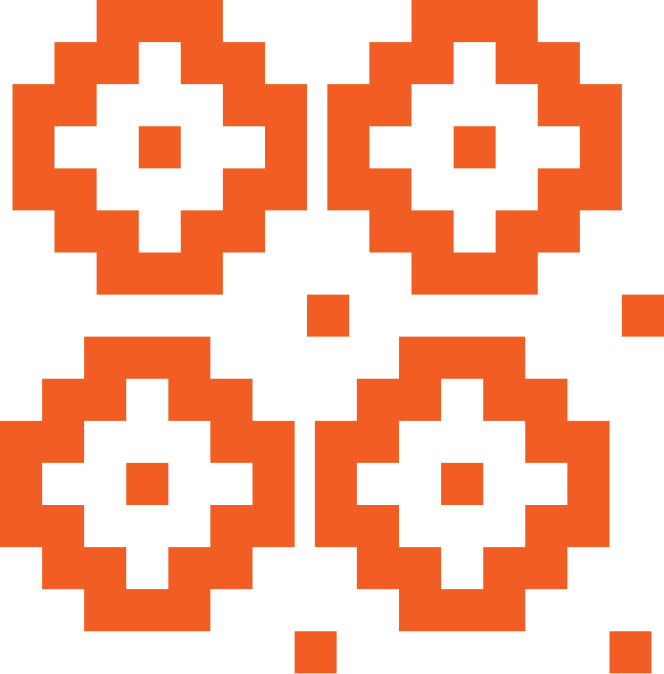
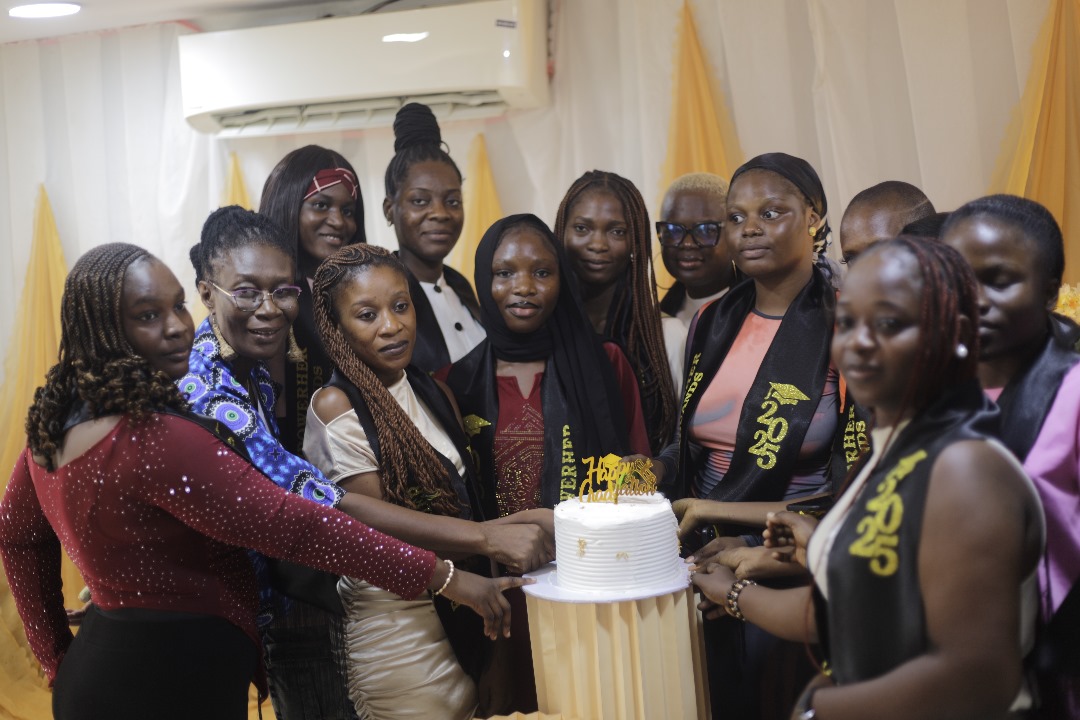
EmpowerHer
The absence of adequate socioeconomic support systems places women at a disadvantage, leading to discrimination and entrenched poverty. Limited access to education, employment opportunities, and financial resources, coupled with societal expectations of caregiving roles, hinder women economic advancement. Discriminatory practices in employment and financial services further marginalize women, perpetuating cycles of poverty and reinforcing gender disparities. Addressing these challenges requires policies and programs that promote gender equality, provide access to education and training, support women entrepreneurship, and dismantle systemic barriers to women economic empowerment. By investing in women socioeconomic development, societies can foster inclusive growth and sustainable progress. Vision Spring Initiatives, with support from EMpower, undertook to support the needs of vulnerable women aged 18-30. Vision Spring Initiatives, through the support of EMpower with a deep commitment to social justice, embarked on a mission to empower vulnerable women in Ikorodu by equipping them with practical tools, essential skills, and resources to facilitate their reintegration into society. This involves mentorship, human rights, sexual and reproductive rights training, business sustenance and saving culture skill training, and vocational training. The climax presents them with start-up capital. Our ultimate goal with this project is to build the capacity of these women and provide them with the necessary skills for self- sufficiency, independence, and empowerment.
UMUADA Project
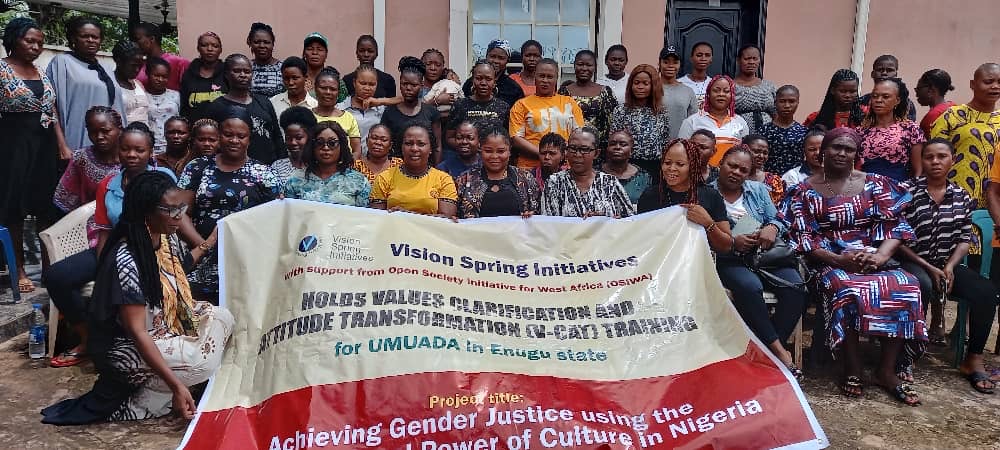
Changing Patterns Of UMUADA Leadership and Institutionalizing a Survivor-Centered Approach to Ending Sexual Violence in Nigeria
Legal Aid Clinic
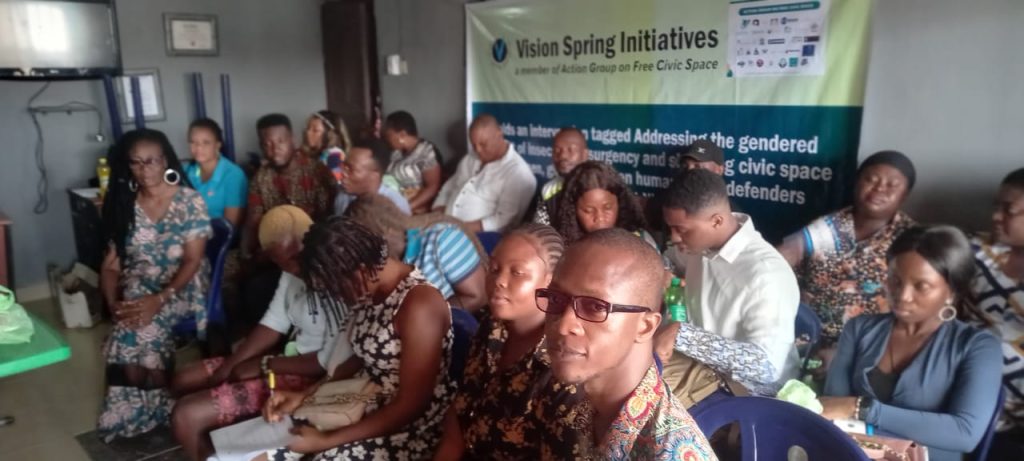
Achieving Gender Justice Using the Transformational Power of Culture in Nigeria
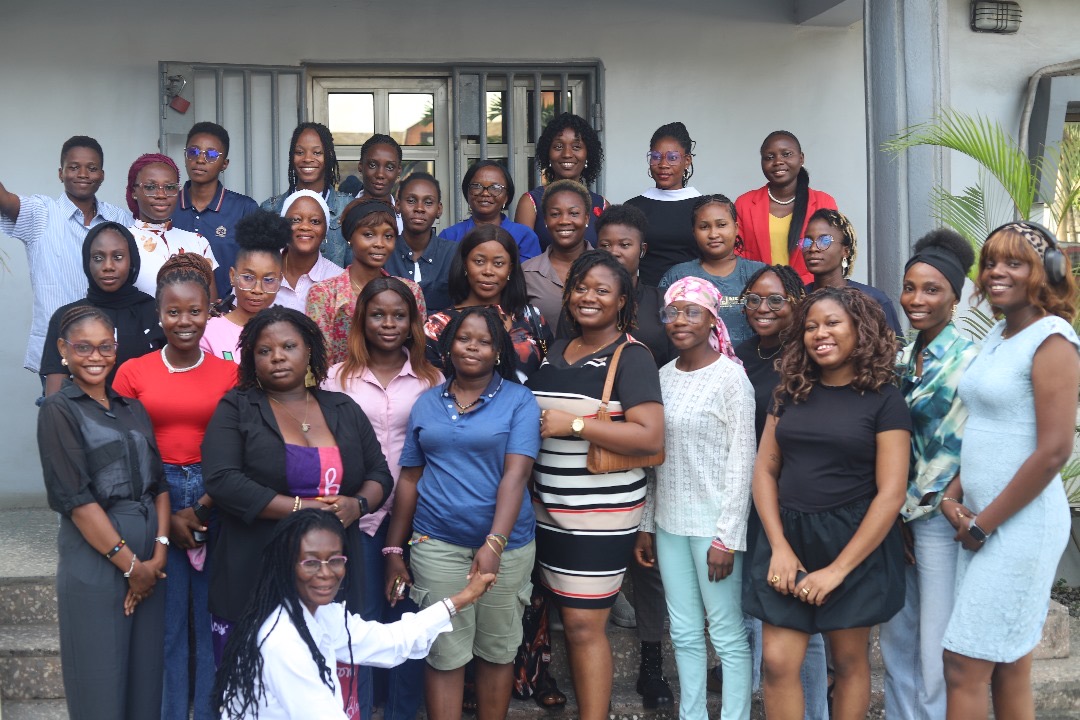
We Lead Project
The violation of the rights of women and girls is pervasive across all spheres of life in Nigeria, including sexual and gender-based violence. Gender equality is undermined by patriarchal systems and beliefs that favour the interests of men above those of women. Due to socio-cultural norms that are shown through discrimination and stigmatization, young women living with HIV, with disabilities, and displaced girls face greater challenges accessing health care.-Vision Spring Initiatives is one of the 11 organisations partnering with HIVOS on the ‘We lead’ project to support the rights of marginalised girls between the ages of 18-30. We Lead intervention in Nigeria is centred on the realization that young women and adolescent girls sexual reproductive health and rights (SRHR) are not recognized and respected. It also recognizes that factors such as gender norms, myths and misconceptions, stigma and discrimination, increased displacement due to climate change, closing spaces,lack of awareness of SRHR, lack of funding, and limited opportunities for inter-generational leadership continue to hamper the achievement of SRHR for young women in Nigeria.To respond to some of the challenges enumerated above, the organisation hosted a series of interventions,such as building the capacities of right holders to effectively engage in advocacy with duty bearers as a means of improving access to SRHR in Nigeria. The organisation partnered with Healthcare providers to rethink their approach to healthcare delivery and provide services devoid of sentiments and judgment.Young women, through a hand-holding approach and advocacy in practice sessions, gained skills to self-advocate for implementation of laws and policies that the government has signed and ratified, including a commitment to the recently endorsed Universal Health Coverage Declaration. This Project spanned the south-west zones in Nigeria, Lagos, Ogun, Osun, Oyo, Ekiti, and Ondo, culminating to national conversations on law reforms led by right holders themselves. The interventions aimed to build a movement of young rights holders towards improving health care service delivery in Nigeria.
Pamoja
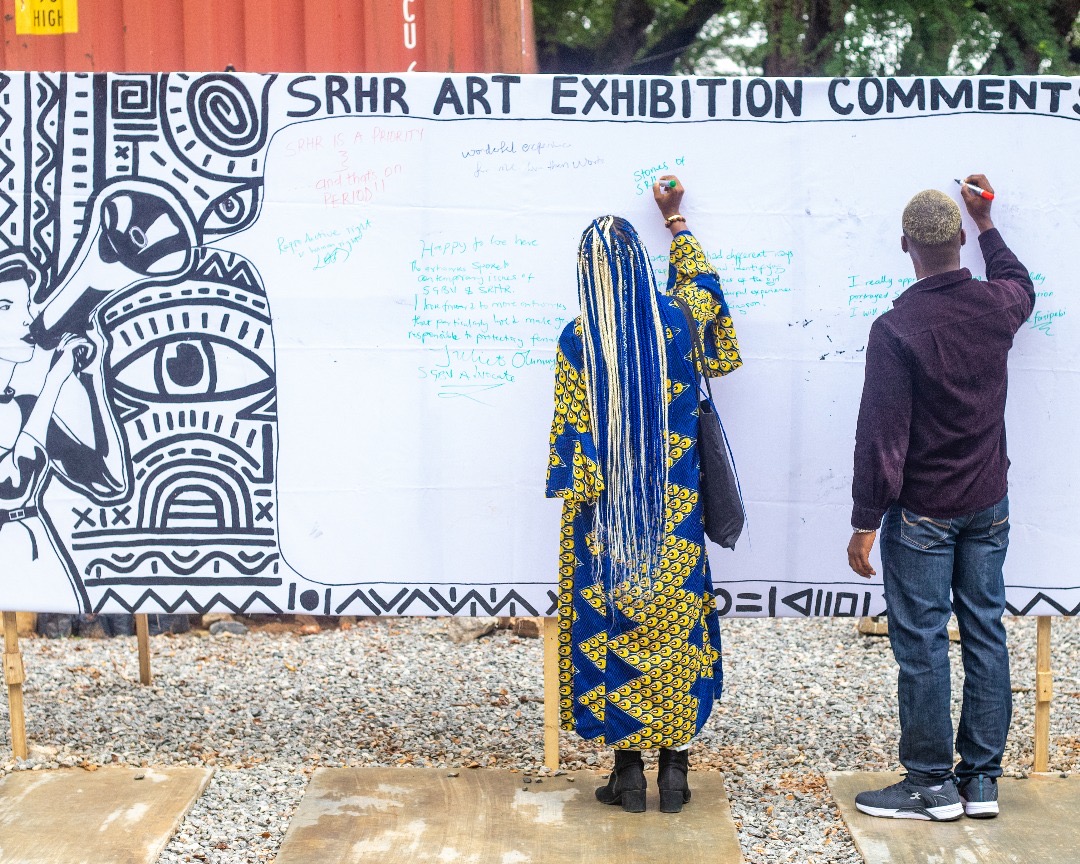

SRHR and Climate Justice
The SRHR outreach was in Majidun, Lagos State and Ganaja Village, Kogi State,which was supported by the Global Fund for Women. This intervention was designed to address the uniquechallenges faced by young women and girls in Majidun and Ganaja, flood-prone and underservedcommunities with limited access to health services. During a two-day outreach program in bothcommunities, VSI facilitated interactive workshops on SRHR, equipping over 200 young women and girlswith the knowledge and resources to make informed choices about their bodies and rights. The outreachalso included medical check-ups, the distribution of hygiene kits, and an awareness session on gender-based violence, ensuring that participants received holistic support tailored to their specific needs. Therewas an intersectional engagement with community leaders and the National Emergency ManagementAgency (NEMA) on flood prevention, measures to take in case of flood and ways to partner andcommunicate with the agencies in the respective states to ensure members of the community are safe andtaken care of in the incidence of flooding.
